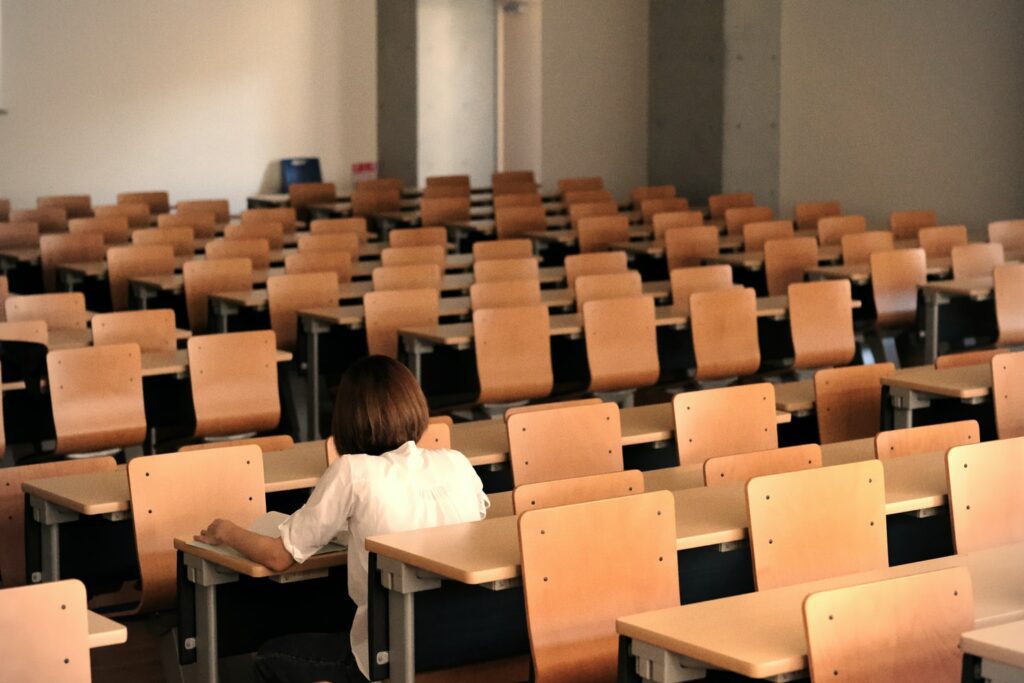Supporting student mental health: Student loneliness at Christmas

After making it through their first term of a new year, and as we approach the festive season, many students will be looking forward to returning home to their loved ones to celebrate.
However, it’s estimated that one in three students remain at university over the Christmas break. Many because the costs or time taken to get home is too great for them.
For others, going home could present its own set of challenges; data from 2019 showed that more than 8,000 university students in the UK were estranged from their families.
Many universities offer students Christmas dinners or run programs that pair students remaining on campus over the holidays with families in the area. Nevertheless, seeing family and friends celebrating without you can be difficult for students, especially without their usual support networks, and this can develop feelings of loneliness and isolation which can compromise mental health.
To help, award-winning GP and young people’s mental health expert, Dr Dominique Thompson, offers guidance and support on dealing with feelings of loneliness:
Feeling lonely is fairly common when students move to university and negotiate a new life away from home.
Humans are inherently social, meaning that we rely on social interaction and cooperation to survive and thrive in our environment; once you strip this away, you are left feeling lonely and vulnerable. While ‘loneliness’ and ‘social isolation’ are often used interchangeably, they do not mean the same thing. Therefore, even if you are not isolated, you may still experience feelings of loneliness.
Firstly, when you’re feeling lonely, be reassured that many people are feeling the same and these feelings are valid. The first consideration is to take things slow. Don’t force yourself to do anything you feel uncomfortable with, especially if you haven’t socialised for a while in the way you might have done pre-pandemic.
While we hear a lot about the harmful aspects of spending too much time online, especially with regards to mental health, it is an important part of keeping connected right now. While in-person contact may be what you crave more than anything, your digital lives also play a key role in keeping you connected. Try to find online social opportunities like clubs and societies, or platforms to engage with your course mates, or scheduling regular contact with family and friends, will all help you feel supported.
Engaging with others outside of your household is extremely important for your mental health and connecting with other people virtually can gradually build up your confidence, rather than jumping into social situations at the deep end if you need to ease in. When it comes to managing loneliness, remember the quality of your relationships is more important than the quantity.
Lastly, if your feelings of loneliness persist and are affecting your well-being most of the time, you may find it beneficial to speak to a professional. Your university’s mental health services or counselling service is a great first step, or chat through your feelings with your GP. They will have a wealth of experience and resources to support your specific needs.
If you continue to struggle, remember you are not alone, and that there are lots of people around the university whose job is to support and help you. Talk to them; your GP, a counsellor, or residential staff, they are all there for you.
Dr Dominique Thompson, award-winning GP, young people’s mental health expert and author of ‘Student well-being: a guide to building better mental health in university’
If you’re still concerned or you’d like more information you can visit:
- Samaritans, call: 116 123 or email: jo@samaritans.org
- MIND
- Studentspace.org.uk
- www.whatsupwitheveryone.com
Supporting students with their mental health on University Mental Health Day
5th Mar 2020: The Government, on University Mental Health Day, announced a £1 million funding boost for student groups most at risk of poor mental health.
According to a 2019 survey by HEPI, 17% of students reported having a mental health condition and one in four students say they often or always feel lonely.
This money, provided by the Department for Health and Social Care, will go to the Office for Students (OfS), which is inviting bidders to submit proposals that will target and help the students who might be at greater risk of mental ill health or who may face barriers to getting support.

Universities Minister Michelle Donelan said:
“Going to university can be a really challenging time, especially if you face added pressures or if you are balancing studies alongside other commitments like carers and mature students.
“It is vital no student is put at risk by not getting the help they need. Universities must step up to this challenge, and this funding will help them and the sector by looking at ways support can be better targeted and improved.”











Responses